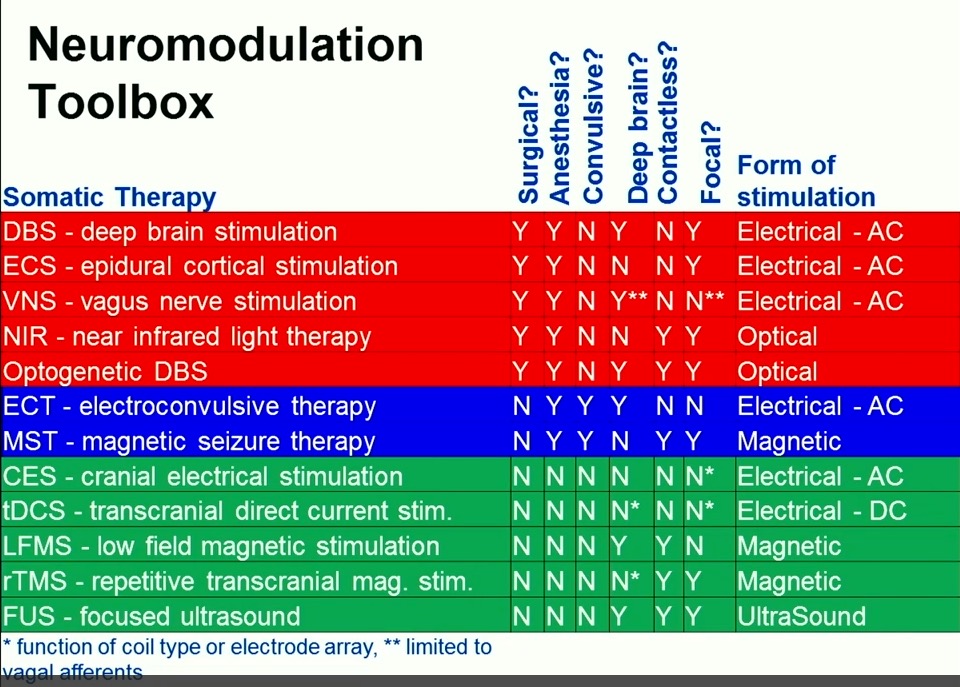Thursday, October 26, 2017. Deep dive (7 hours!) long form, state of the art discussion of neurostimulation by leading experts. More about the Neuroethics Division of the BRAIN Multi-Council Working Group
Sarah Lisanby, director of the division of the National Institute of Mental Health (NIMH) opens the workshop (very interesting, great slides) after introductions at 0:14, Anna Wexler speaks at 2:25.
Permalink to video https://videocast.nih.gov/launch.asp?23553

Roster
- Co-chair Christine Grady, MSN, PhD, Chief, NIH Department of Bioethics
- Co-chair Hank Greely, JD, Stanford Law School (MCWG member)
- Winston Chiong, MD, PhD, University of California, San Francisco
- James Eberwine, PhD, University of Pennsylvania (MCWG member)
- Nita Farahany, JD, PhD, Duke School of Law
- L. Syd M Johnson, PhD, Michigan Technological University
- Bradley Hyman, MD, PhD, Massachusetts General Hospital (MCWG member)
- Steve Hyman, MD, Broad Institute
- Karen Rommelfanger, PhD, Emory University
- Elba Serrano, PhD, New Mexico State University (MCWG member)
- Khara Ramos, PhD, NINDS – Neuroethics Division Executive Secretary and NIH liaison

